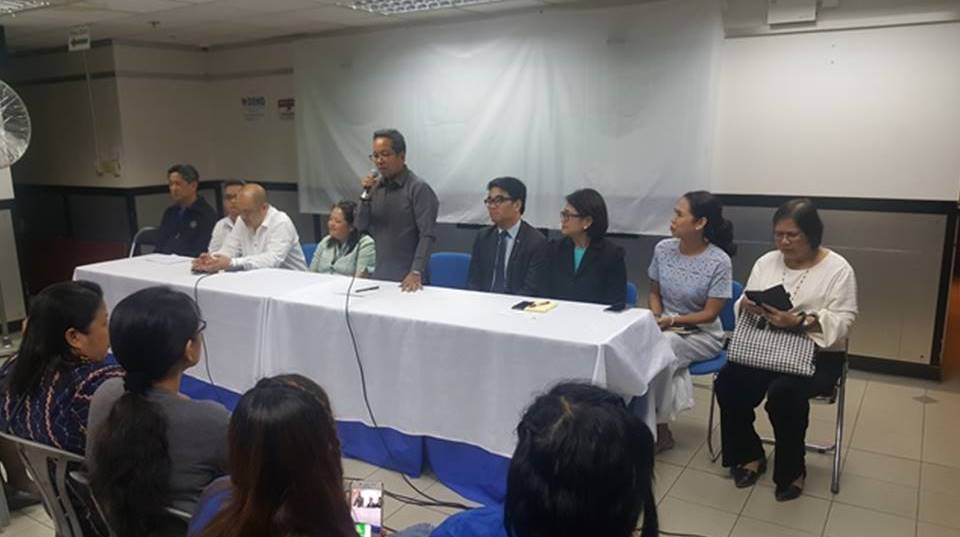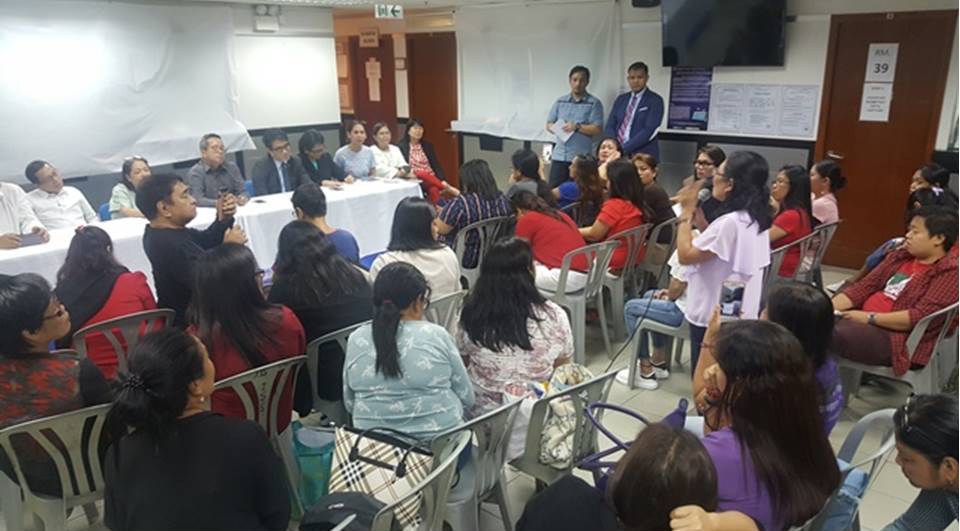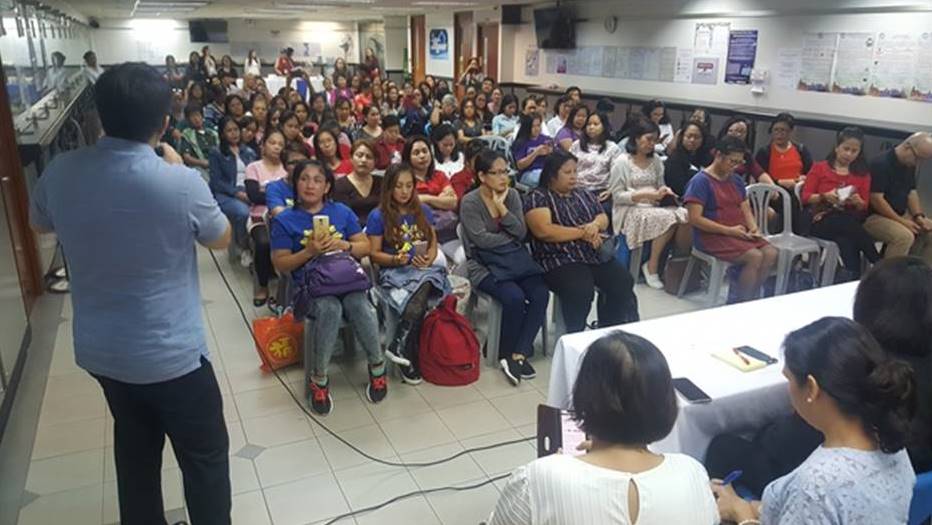The Philippine Consulate General in Hong Kong convened its first general meeting under Consul General Antonio A. Morales with some 200 Filipino community leaders to discuss key issues affecting Filipinos living and working in Hong Kong.
Opening the meeting, Consul General Morales asserted his adherence to an open-door policy of consultation and discussion. Although the Consulate’s main task is to implement the law, he said it is duty-bound to listen to the sentiments of Filipinos, especially the 207,000 household service workers comprising 90 percent of the roughly 230,000 Filipinos residing in Hong Kong.
Of the many issues raised, the question of the additional financial burdens on overseas Filipino workers (OFWs) from the proposed "Social Security Act of 2018," which was passed by the Philippine Senate on 8 October 2018, elicited widespread concerns among the participants.
The bill tasks the Department of Foreign Affairs (DFA) and the Department of Labor and Employment (DOLE) as the primary agencies to negotiate for the OFWs, especially those working in Middle East countries while "enhancing the functions of the Philippine embassies therein to enable them to collect the SSS contributions".
Many expressed fears the mandatory membership imposed by the proposed overhaul of the Social Security System (SSS) charter would drastically reduce workers’ net income, in addition to a new policy on mandatory insurance approved by the Philippine Overseas Employment Administration (POEA) on Governing Board (GB) Resolution No. 4 on 17 August 2018.
Dolores Balladares-Pelaez, chair of migrant workers’ rights group United Filipinos in Hong Kong (UNIFIL-Migrante-HK), the SSS mandatory membership and insurance will just add to the list of expenses that employers are made to pay for and will merely increase friction between the employer and worker.
She further said that although the resolution says that the employer must pay, in reality, it is the worker who will be paying the insurance to prevent arguments with the employer. The Philippine Department of Foreign Affairs and the Department of Labor and Employment have been charged with.
Per the POEA GB Resolution No. 4, all returning OFWs with the same employer, or have moved to another, must register with POEA, they must provide a passport valid for at least six months, a valid working visa, and a certificate of insurance coverage similar to that required of those leaving for their first job abroad.
Based on the guidelines, HSWs in Hong Kong, whether on new or renewed contracts, are required to pay an insurance of HK$1,200 or PHP7,800 before being allowed to return to work.
The community leaders also raised pending issues, such as the abrogation of the requirement to obtain an Overseas Employment Certificate (OEC) which was supposed to have been superseded by the so-called iDOLE in June 2017, as well as the expected launch of the OFW eCard as proposed replacement of iDOLE card.
UNIFIL-Migrante-HK also reiterated their call for the Consulate’s help in lobbying for better working conditions for all migrant workers in Hong Kong, as well as for more responsive actions by the Hong Kong Government against the illegal withholding of Philippine passports to secure loans, and the long-standing cases of Emry’s and Peya Travel which victimized hundreds.
Filipino musicians and permanent residents also sought the Consulate’s assistance in fighting for better work and immigration conditions. In response consular and labor officials described to the community the efforts they were making with other consulates, Legislative Council members and NGOs to combat human trafficking, which preys on Filipinos on entertainment contracts.
They also agreed to make more efforts to look into ways to assist permanent residents, who as non-Chinese ethnic minorities may experience subtle discrimination or even ostracism at school or in local communities for their inability to communicate in Cantonese, thus perpetuating a vicious cycle of loss of opportunities to further their studies or find good-paying work.
Deputy Consul General Germinia V. Aguilar-Usudan closed the two-hour meeting by agreeing to hold more town hall-style consultations with Filipino community leaders in the future.




